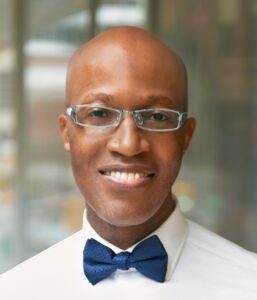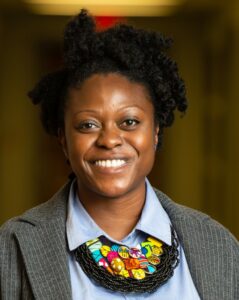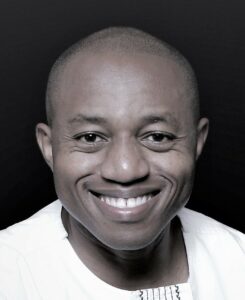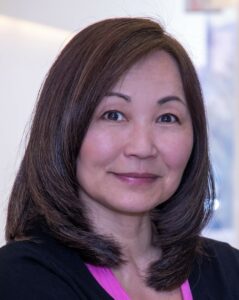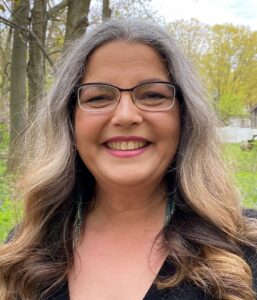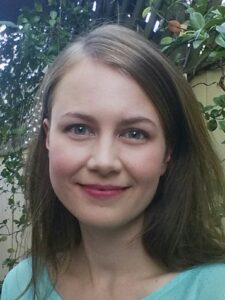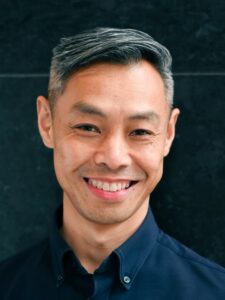From: Cheryl Regehr, Vice-President & Provost
Susan McCahan, Vice-Provost, Innovations in Undergraduate Education
Date: April 1, 2022
Re: 2021-22 Recipients of the Early Career Teaching Award and Teaching Fellowship (PDAD&C #31)
We are delighted to announce the recipients of the 2021-22 University of Toronto Early Career Teaching Award and University of Toronto Teaching Fellowship. In addition to congratulating this year’s recipients, we would like to thank the nominators for their work in preparing submissions. We would also like to thank the members of the selection committee for their dedication to recognizing excellence in teaching at the University of Toronto.
University of Toronto Early Career Teaching Award, 2021-22
This award recognizes faculty members who demonstrate an exceptional commitment to student learning, pedagogical engagement and teaching innovation. This year the Committee granted five awards of $3,000.
Keith Adamson
Assistant Professor, Teaching Stream
Factor-Inwentash Faculty of Social Work
Professor Keith Adamson joined the Factor-Inwentash Faculty of Social Work as an Assistant Professor, Teaching Stream in August 2017. He holds more than 20 years of progressive senior management experience in clinical, management and professional practice leadership roles, as well as expertise in Clinical Governance at Mackenzie Health, Women’s College Hospital, St. Joseph’s Health Centre in Toronto and Holland Bloorview Kids Rehabilitation Hospital. His management roles have expanded from providing a professional practice lens for the Social Work profession to being responsible for the professional practice of other health disciplines.
Professor Adamson pursues research that seeks to explore innovative pedagogical approaches to interprofessional education and practice, research that explores new roles for social work within a changing healthcare system, as well as research that explores how compassionate care and empathy can be enhanced in social work education through collaboration with service users, clients and their families. Building on his commitment to education for client and family centered care, Professor Adamson developed a social work disability course in collaboration with clients and family members from the disability community and implemented a co-teaching model that represents people with lived experience as experts and holders of authoritative knowledge based on their experience. The pedagogical innovation went further by collaborating with service providers in a group of healthcare organizations to develop a training program that prepared individuals with disabilities and caregivers to co-teach with university instructors – learning how to lecture, facilitate group discussions, address questions and run simulations. Professor Adamson is committed to the spread of this pedagogical approach in professional health education, and travels nationally and internationally to share this work.
Funké Aladejebi
Assistant Professor
Department of History, Faculty of Arts & Science
Professor Funké Aladejebi joined the Department of History at the St George Campus in 2020. She specializes in Black Canadian history, and her research and teaching interests focus on oral history, the history of education in Canada, Black Canadian women’s history and transnationalism. Her teaching and advocacy work seeks to address systemic forms of anti-Blackness within and external to the academy. As a result, Professor Aladejebi seeks to critically engage students with the histories and lived experiences of persons of African descent in Canada as way to both challenge limitations within the academy, but also offer opportunities for students to extend their knowledge and expertise alongside their current disciplinary goals.
Professor Aladejebi’s teaching emphasizes an interdisciplinary focus that combines history with critical race theory, anti-oppressive and anti-racist pedagogies. Within her classes, Professor Aladejebi uses this approach to include knowledge and experience from scholars and researchers often excluded or underrepresented within secondary and post-secondary curricula. Her teaching strategies often connect historical research and evidence to contemporary contexts and current social issues. Combining creative and accessible learning models with the understanding and application of theories, concepts and historical research methods, Professor Aladejebi strives to create a learning environment that is both stimulating and invites students to be part of the knowledge production process.
Obidimma Ezezika
Assistant Professor, Teaching Stream
Department of Health & Society, University of Toronto Scarborough
Professor Obidimma Ezezika is a faculty member in the Department of Health & Society (Scarborough Campus) and the Dalla Lana School of Public Health (St. George Campus). His research lies at the nexus of Global Health and Implementation Science. His teaching achievements include creating and launching a variety of high-calibre undergraduate and graduate courses, numerous publications on pedagogy and the provision of educational leadership in both formal and informal roles at the University.
In the past four years, Professor Ezezika has developed courses that range from experiential learning to theoretical-based learning, from Work-Integrated Learning (WIL) courses to online and global classroom-oriented courses. In turn, students have gone on to receive awards, prizes and prestigious conference presentation invitations through these courses. Professor Ezezika is active in educational research and has authored peer-reviewed articles in several leading education journals. He is the founding Director and Principal Investigator of the Global Health & Innovation Lab, an Implementation Science research and education initiative on the systematic uptake of evidence-based interventions into routine practice in Global Health. The lab has trained scores of graduate and undergraduate students and produced award-winning pedagogical innovations, including the Bio Racer board game.
An innovative leader in education, Professor Ezezika has provided academic leadership, mentorship and training to faculty members across the University, particularly around experiential learning and global classrooms, and previously served as a Vice President International Advisor on Global Classrooms. He is also the inaugural recipient of the University of Toronto Global Educator Award as well as the recipient of the Next Einstein Award and the D2L Innovation Award in Teaching and Learning.
Sherry Fukuzawa
Assistant Professor, Teaching Stream
Department of Anthropology, University of Toronto Mississauga
Professor Sherry Fukuzawa joined the Department of Anthropology at the Mississauga Campus in 2018, after many years as a sessional instructor. Her teaching is based on inclusive pedagogical principles that promote pluralistic ontologies to include a diversity of knowledge systems in the Academy. She believes diversity and differences empower students to become self-directed independent lifelong learners. All her courses involve active learning components to encourage self-reflection, collaborative small group problem-solving, as well as flexibility and choice in assessment options. She has developed problem-based and community-engaged learning projects involving practical experiences where students engage in course material within an applied framework.
Professor Fukuzawa is currently involved in research investigating ways to utilize technology to implement problem-based learning experiences across disciplines. Her online hybridized problem-based learning webtool called “The Virtual Mystery” is funded by the Learning Education Advancement Fund (LEAF). She is also a founding member of the Indigenous Action Group (IAG) where she fosters and facilitates community-engaged learning (CEL) and community-initiated research (CIR) in partnership with the Mississaugas of the Credit First Nation. The IAG is currently implementing a CEL course at UTM entitled “Anthropology and Indigenous Peoples in Turtle Island” (ANT241H) funded by a Connaught Community Partnerships Grant. The IAG is also running a mixed methods longitudinal study on the influence of community-engaged learning with a local Indigenous community on students’ academic learning, personal growth and civic activism.
Angela Mashford-Pringle
Assistant Professor
Dalla Lana School of Public Health
Professor Angela Mashford-Pringle is a member of the Timiskaming First Nation (Algonquin) who was the second Indigenous graduate from the Dalla Lana School of Public Health where she is now an Assistant Professor and Associate Director at the Waakebiness-Bryce Institute for Indigenous Health. Professor Mashford-Pringle collaborates with Indigenous communities across Ontario in the areas of cultural safety training, justice involved Indigenous peoples, climate change affecting food sovereignty and revitalization of cultural ways of being. The basis of many of her projects focus on land-based learning, spirituality and the Indigenous social determinants of health, and their relationships to health, healing and cultural resurgence.
Drawing from her own teachings, Professor Mashford-Pringle integrates Indigenous pedagogies and ontologies of land-based learning and relationality into her teaching. Professor Mashford-Pringle co-teaches with Elders, Knowledge Keepers and Senators to allow students learning about Indigenous health to experience and learn in a culturally safe and welcoming manner. She emphasizes the importance of relationship with ourselves and one another in the classroom, fostering a community space for students to reflect on their power, positionality and privileges as they approach problems and case studies. Professor Mashford-Pringle delivered a five-day land-based learning course hosted at Hart House Farm in Caledon, Ontario where students received teachings from Elders, Knowledge Keepers and artists on topics such as sacred medicines, fire-making and water. Despite the pandemic and virtual learning, she continued to offer land-based activities in her syllabi. As public health restrictions begin to lift, Professor Mashford-Pringle will continue to offer land-based learning opportunities, particularly through a new 10-day land-based intensive programming for first year Master of Public Health in Indigenous Health students.
University of Toronto Teaching Fellowship, 2021-22
The University of Toronto Teaching Fellowship provides funds for faculty members in the teaching stream focused on supporting pedagogical innovation and research. This Fellowship is a pathway for promoting emerging leaders across the University. The Fellowship is an opportunity for faculty members to undertake a two-year teaching and learning project centered on either curriculum review or renewal, or course redesign/development, working closely with the Office of the Vice-Provost, Innovations in Undergraduate Education and the Centre for Teaching Support & Innovation (CTSI).
Cindy Blois
Assistant Professor, Teaching Stream
Department of Mathematics, Faculty of Arts & Science
Professor Cindy Blois is an Assistant Professor, Teaching Stream in the Department of Mathematics at the Faculty of Arts and Science. She strives to foster student-centred learning environments, where each student has a voice, a sense of belonging and is supported to grow along their own unique path. Currently, Professor Blois is the coordinator of the calculus and linear algebra course for students in commerce and the social sciences. In this role, she is redesigning the course to meet students’ modern needs, ensuring that they are equipped to think creatively and work in a collaborative atmosphere, as they use mathematics to solve problems in the real world.
One of her main goals as a University of Toronto Teaching Fellow is to design and implement a sequence of experiential learning projects for this course, in collaboration with local non-profit, business, or government organizations. Closely intertwined with this work, she will also develop resources and training for the team of course instructors and teaching assistants, to ensure that they are continually supported as key contributing partners on this project.
Before joining University of Toronto in 2019, Professor Blois was a Dornsife Science Transformation Fellow at the University of Southern California, where she taught a large variety of courses and collaborated on a suite of exploratory collaborative learning activities for undergraduate statistics courses. She also co-founded the WoMentoring Group, an NSF-funded project to facilitate mentorship relationships among women graduate and undergraduate students in mathematics. This upcoming summer, Professor Blois is also co-creating a workshop funded by the Mathematical Association of America (MAA) on Leveraging the MAA’s Instructional Practice Guide in Coordinating Large Multi-Section Courses.
Euson Yeung
Assistant Professor, Teaching Stream
Department of Physical Therapy, Temerty Faculty of Medicine
As a physical therapist and educator for over 25 years, Professor Euson Yeung has observed the tremendous potential of equipping learners to tackle the ambiguities and complexities of clinical practice. His involvement in supervising physical therapy students early in his career sparked a keen interest in professional education, which subsequently led him to complete a PhD in health professions education. In his current role as an Assistant Professor, Teaching Stream in the Department of Physical Therapy, he is actively involved in curriculum development and teaching in the Master of Science in Physical Therapy program. As a seasoned educator, Professor Yeung has a particular interest in exploring how physical therapy education can best prepare learners for significant impact. His education scholarship centres around the pursuit of critical thinking and resilience in the face of the evolving challenges of today’s health care system. Drawing on his experience in renewing and designing curricula, his research explores the philosophies of education we have adopted, our current education practices, and tensions that arise as a result of misalignments between the two. His scholarly work not only informs his teaching practices but also plays a critical role in developing faculty development initiatives to support educators in helping learners make an impact now and in their future endeavours.
